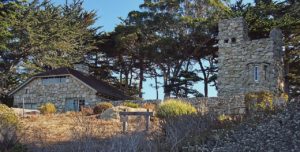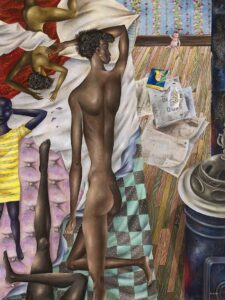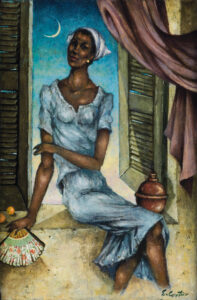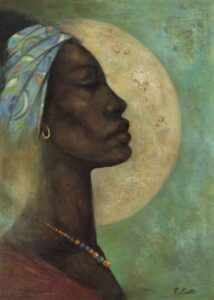Dear Zazie, Here is today’s Lovers’ Chronicle from Mac Tag dedicated to his muse. Rhett
The Lovers’ Chronicle
Dear Muse,
© copyright 2021 mac tag/cowboy coleridge all rights reserved
Pale Love, Pale Rider
this wanderin’ light
swear at night where
the Fates take you
keep your fadin’ pleasure
she escapes already
at least you have seen
it will cross your path again
fallin’ you can take it with you
in the far away
at the bottom
of the mournful sky
contemplate sufferin’,
it will come and go
on the edge and under this look,
a moment, be still your farewell
do you see now, how it must be
for the unforgiven
© copyright 2019 mac tag/cowboy coleridge all rights reserved
blinded by this wanderin’ light
swear at night where the Fates plunge you
always keep, your fadin’ pleasure
she escapes already
at least you have seen Shine
it will cross your path once again
fallin’ you can take it with you
in the far far away
for She reigns at the bottom of the mournful sky
ruthless bein’, contemplate sufferin’,
considerin’ Her eternal eye, impassive,
it will come and go
on the edge of forever, and under this look,
a moment of love, be still your farewell
do you see now, how it must be
for the unforgiven
© copyright 2016 mac tag/cowboy Coleridge all rights reserved
 Today is the birthday of Pina Menichelli (Giuseppa Iolanda Menichelli; Castroreale, Sicliy 10 January 1890 – 29 August 1984 Milan); actress and silent film star. After a career in theatre and a series of small film roles, Menichelli was launched as a film star when Giovanni Pastrone gave her the lead role in The Fire (1916). Over the next nine years, Menichelli made a series of films, often trading on her image as a diva and on her passionate, decadent eroticism. Menichelli became a global star, and one of the most appreciated actresses in Italian cinema, before her retirement in 1924, aged 34.
Today is the birthday of Pina Menichelli (Giuseppa Iolanda Menichelli; Castroreale, Sicliy 10 January 1890 – 29 August 1984 Milan); actress and silent film star. After a career in theatre and a series of small film roles, Menichelli was launched as a film star when Giovanni Pastrone gave her the lead role in The Fire (1916). Over the next nine years, Menichelli made a series of films, often trading on her image as a diva and on her passionate, decadent eroticism. Menichelli became a global star, and one of the most appreciated actresses in Italian cinema, before her retirement in 1924, aged 34.
Since her death, restorations of Menichelli’s surviving films have been shown at important film festivals, and her filmography has been re-assembled and re-evaluated by film historians.



During a theatrical tour of Argentina in 1909, Menichelli married an Italo-Argentine, Libero Pica, and the couple had three children. The couple separated when Menichelli was pregnant with their third child, a daughter called Cesarina, who was born in Milan in 1912.
The fact that Menichelli was a ‘separated woman’ was well-known to the Italian public.
On the death of her first husband, who had always refused to annul their marriage, Menichelli married Baron Carlo D’Amato, founder of Rinascimento Film, in 1924. Menichelli retired from public life and refused all contact with film historians. Menichelli also destroyed all the documents and photographs relating to her film career which were in her possession.
| Robinson Jeffers | |
|---|---|

Robinson Jeffers, photographed by Carl Van Vechten, July 9, 1937
|
|
Today is the birthday of Robinson Jeffers (born John Robinson Jeffers; Allegheny, Pennsylvania; January 10, 1887 – January 20, 1962 Carmel, California); poet, known for his work about the central California coast.
He earned his bachelor’s degree from Occidental College at age 18. After he graduated from Occidental, Jeffers went to the University of Southern California (USC) to study at first literature, and then medicine.
 He met Una Call Kuster in 1906; she was three years older than he was, a graduate student, and the wife of a Los Angeles attorney. Jeffers and Mrs. Kuster became lovers. Mr. Kuster discovered their affair in 1910. Jeffers dropped out of USC medical school and enrolled as a forestry student at the University of Washington in Seattle, a course of study that he abandoned after a semester, at which time he returned to Los Angeles. By 1912 the affair became a scandal, reaching the front page of the Los Angeles Times. Una spent some time in Europe to quiet things down, then the lovers lived together by Lake Washington to await the completion of Una’s divorce.
He met Una Call Kuster in 1906; she was three years older than he was, a graduate student, and the wife of a Los Angeles attorney. Jeffers and Mrs. Kuster became lovers. Mr. Kuster discovered their affair in 1910. Jeffers dropped out of USC medical school and enrolled as a forestry student at the University of Washington in Seattle, a course of study that he abandoned after a semester, at which time he returned to Los Angeles. By 1912 the affair became a scandal, reaching the front page of the Los Angeles Times. Una spent some time in Europe to quiet things down, then the lovers lived together by Lake Washington to await the completion of Una’s divorce.

The two were married in 1913, then moved to La Jolla, California, and finally Carmel, California, where Jeffers constructed their home, Tor House and Hawk Tower, a gift of love for Una. Una died of cancer in 1950.
Verse
- O that our souls could scale a height like this,
A mighty mountain swept o’er by the bleak
Keen winds of heaven; and, standing on that peak
Above the blinding clouds of prejudice,
Would we could see all truly as it is;
The calm eternal truth would keep us meek.- A Hill-Top View (1904); This is one of his earliest poems, printed in the the Aurora, a student publication of Occidental College.
- At the equinox when the earth was veiled in a late rain, wreathed with wet poppies, waiting spring
The ocean swelled for a far storm and beat its boundary, the ground-swell shook the beds of granite. - I gazing at the boundaries of granite and spray, the established sea-marks, felt behind me
Mountain and plain, the immense breadth of the continent, before me the mass and double stretch of water.- “Continent’s End” in Tamar and Other Poems (1924)
- The long migrations meet across you and it is nothing to you, you have forgotten us, mother.
You were much younger when we crawled out of the womb and lay in the sun’s eye on the tideline. - It was long and long ago; we have grown proud since then and you have grown bitter; life retains
Your mobile soft unquiet strength; and envies hardness, the insolent quietness of stone.- “Continent’s End” in Tamar and Other Poems (1924)
- The tides are in our veins, we still mirror the stars, life is your child, but there is in me
Older and harder than life and more impartial, the eye that watched before there was an ocean.- “Continent’s End” in Tamar and Other Poems (1924)
- Mother, though my song’s measure is like your surf-beat’s ancient rhythm I never learned it of you.
Before there was any water there were tides of fire, both our tones flow from the older fountain.- “Continent’s End” in Tamar and Other Poems (1924)
- Stone-cutters fighting time with marble, you fore-defeated
Challengers of oblivion
Eat cynical earnings, knowing rock splits, records fall down,
The square-limbed Roman letters
Scale in the thaws, wear in the rain.- “To The Stone-Cutters” in Tamar and Other Poems (1924)
- Happy people die whole, they are all dissolved in a moment,
they have had what they wanted- “Post Mortem” in The Women at Point Sur (1927)
- I have seen these ways of God: I know of no reason
For fire and change and torture and the old returnings.- “Apology for Bad Dreams” in The Women at Point Sur (1927)
- I hate my verses, every line, every word.
Oh pale and brittle pencils ever to try
One grass-blade’s curve, or the throat of one bird
That clings to twig, ruffled against white sky.
Oh cracked and twilight mirrors ever to catch
One color, one glinting flash, of the splendor of things.- “Love the Wild Swan” (1935)
- This wild swan of a world is no hunter’s game.
Better bullets than yours would miss the white breast
Better mirrors than yours would crack in the flame.
Does it matter whether you hate your . . . self?
At least Love your eyes that can see, your mind that can
Hear the music, the thunder of the wings. Love the wild swan.- “Love the Wild Swan” (1935)
- Here is a symbol in which
Many high tragic thoughts
Watch their own eyes.- “Rock and Hawk” in Solstice and Other Poems (1935)
- I think, here is your emblem
To hang in the future sky;
Not the cross, not the hive,
But this; bright power, dark peace;
Fierce consciousness joined with final
Disinterestedness;
Life with calm death; the falcon’s
Realist eyes and act
Married to the massive
Mysticism of stone,
Which failure cannot cast down
Nor success make proud.- “Rock and Hawk” in Solstice and Other Poems (1935)
- Then what is the answer? — Not to be deluded by dreams.
To know that great civilizations have broken down into violence, and their tyrants come, many times before.
When open violence appears, to avoid it with honor or choose the least ugly faction; these evils are essential.
To keep one’s own integrity, be merciful and uncorrupted and not wish for evil; and not be duped
By dreams of universal justice or happiness. These dreams will not be fulfilled.- “The Answer” (1936)
- Know that however ugly the parts appear
the whole remains beautiful. A severed hand
Is an ugly thing and man dissevered from the earth and stars
and his history… for contemplation or in fact…
Often appears atrociously ugly. Integrity is wholeness,
the greatest beauty is
Organic wholeness, the wholeness of life and things, the divine beauty
of the universe. Love that, not man
Apart from that, or else you will share man’s pitiful confusions,
or drown in despair when his days darken.- “The Answer” (1936)
- There is no reason for amazement: surely one always knew that cultures decay, and life’s end is death.
- “The Purse-Seine” (1937)
- Reason will not decide at last; the sword will decide.
The sword: an obsolete instrument of bronze or steel,
formerly used to kill men, but here
In the sense of a symbol.- “Contemplation of The Sword” (1938)
- Dear God, who are the whole splendor of things and the sacred
stars, but also the cruelty and greed, the treacheries
And vileness, insanities and filth and anguish: now that this
thing comes near us again I am finding it hard
To praise you with a whole heart.- “Contemplation of The Sword” (1938)
- I sadly smiling remember that the flower fades to make fruit, the fruit rots
to make earth.- “Shine, Perishing Republic” (1939)
- Meteors are not needed less than mountains:
shine, perishing republic.- “Shine, Perishing Republic” (1939)
- Corruption never has been compulsory; when the cities lie at the monster’s feet there are left the mountains.
- “Shine, Perishing Republic” (1939)
- And boys, be in nothing so moderate as in love of man, a clever servant,
insufferable master.
There is the trap that catches noblest spirits, that caught — they say —
God, when he walked on earth.- “Shine, Perishing Republic” (1939)
- The world’s in a bad way, my man,
And bound to be worse before it mends;
Better lie up in the mountain here
Four or five centuries,
While the stars go over the lonely ocean…- “The Stars Go Over The Lonely Ocean” (1940)
- Keep clear of the dupes that talk democracy
And the dogs that talk revolution,
Drunk with talk, liars and believers.
I believe in my tusks.
Long live freedom and damn the ideologies.- “The Stars Go Over The Lonely Ocean” (1940)
- That public men publish falsehoods
Is nothing new. That America must accept
Like the historical republics corruption and empire
Has been known for years.
Be angry at the sun for setting
If these things anger you.- “Be Angry At The Sun” (1941)
- The gang serves lies, the passionate
Man plays his part; the cold passion for truth
Hunts in no pack.- “Be Angry At The Sun” (1941)
I will have shepherds for my philosophers,
Tall dreary men lying on the hills all night
Watching the stars, let their dogs watch the sheep. And I’ll have lunatics
For my poets, strolling from farm to farm, wild liars distorting
The country news into supernaturalism —
For all men to such minds are devils or gods — and that increases
Man’s dignity, man’s importance, necessary lies
Best told by fools.
- “The Silent Shepherds” (1958)
- Science and mathematics
Run parallel to reality, they symbolize it, they squint at it,
They never touch it: consider what an explosion
Would rock the bones of men into little white fragments and unsky the world
If any mind for a moment touch truth.- “The Silent Shepherds” (1958)
- He is no God of love, no justice of a little city like
Dante’s Florence, no anthropoid God
Making commandments: this is the God who does not
care and will never cease. Look at the seas there
Flashing against this rock in the darkness — look at the
tide-stream stars — and the fall of nations — and dawn
Wandering with wet white feet down the Carmel Valley
to meet the sea. These are real and we see their beauty.
The great explosion is probably only a metaphor — I know
not — of faceless violence, the root of all things.- “The Great Explosion” in the posthumous publication The Beginning and the End (1973)
- Come little ones,
You are worth no more than the foxes and yellow
wolfkins, yet I will give you wisdom.
O future children:
Trouble is coming; the world as of the present time
Sails on its rocks; but you will be born and live
Afterwards. Also a day will come when the earth
Will scratch herself and smile and rub off humanity:
But you will be born before that.Time will come, no doubt,
When the sun too shall die; the planets will freeze,
and the air on them; frozen gases, white flasks of air
Will be dust: which no wind ever will stir: this very
dust in dim starlight glistening
Is dead wind, the white corpse of wind.
Also the galaxy will die; the glitter of the Milky Way,
our universe, all the stars that have names are dead.
Vast is the night. How you have grown, dear night,
walking your empty halls, how tall!- The Double Axe and Other Poems, including eleven suppressed poems (1977) II.The Inhumanist XLV
- When the sun shouts and people abound
One thinks there were the ages of stone and the age of bronze
And the iron age; iron the unstable metal;
Steel made of iron, unstable as his mother; the towered-up cities
Will be stains of rust on mounds of plaster.
Roots will not pierce the heaps for a time, kind rains will cure them,
Then nothing will remain of the iron age
And all these people but a thigh-bone or so, a poem
Stuck in the world’s thought, splinters of glass
In the rubbish dumps, a concrete dam far off in the mountain…- “Summer Holiday”
- The extraordinary patience of things!
This beautiful place defaced with a crop of suburban houses —
How beautiful when we first beheld it,
Unbroken field of poppy and lupin walled with clean cliffs;
No intrusion but two or three horses pasturing…- “Carmel Point”
- Now the spoiler has come: does it care?
Not faintly. It has all time. It knows the people are a tide
That swells and in time will ebb, and all
Their works dissolve. Meanwhile the image of the pristine beauty
Lives in the very grain of the granite,
Safe as the endless ocean that climbs our cliff. — As for us:
We must uncenter our minds from ourselves;
We must unhumanize our views a little, and become confident
As the rock and ocean that we were made from.- “Carmel Point”
- Against the outcrop boulders of a raised beach
We built our house when I and my love were young.- “The Last Conservative”
- The rock-cheeks have red fire-stains.
But the place was maiden, no previous
Building, no neighbors, nothing but the elements,
Rock, wind, and sea; in moon-struck nights the mountain
Coyotes howled in our dooryard; or doe and fawn
Stared in the lamplit window, We raised two boys here
All that we saw or heard was beautiful
And hardly human. - Oh heavy change.
The world deteriorates like a rotting apple, worms and a skin.
They have built streets around us, new houses
Line them and cars obsess them — and my dearest has died.
The ocean at least is not changed at all,Cold, grim, and faithful; and I still keep a hard edge of forest
Haunted by long gray squirrels and hoarse herons.- “The Last Conservative”
- If you should look for this place after a handful of lifetimes:
Perhaps of my planted forest a few
May stand yet, dark-leaved Australians or the coast cypress, haggard
With storm-drift; but fire and the axe are devils.
Look for foundations of sea-worn granite, my fingers had the art
To make stone love stone, you will find some remnant.
But if you should look in your idleness after ten thousand years:
It is the granite knoll on the granite
And lava tongue in the midst of the bay, by the mouth of the Carmel
River Valley; these four will remain
In the changes of names. You will know it by the wild sea-fragrance of the wind.- “Tor House”
- Here from this mountain shore, headland beyond stormy headland
plunging like dolphins through the blue sea-smoke
Into pale sea — look west at the hill of water: it is half the planet:
this dome, this half-globe, this bulging
Eyeball of water, arched over to Asia,
Australia and white Antarctica: those are the eyelids that never close;
this is the staring unsleeping
Eye of the earth; and what it watches is not our wars.- “The Eye”
And today is the birthday of Eldzier Cortor (January 10, 1916 – November 26, 2015); African-American artist and printmaker. His work typically features elongated nude figures in intimate settings, influenced by both traditional African art and European surrealism. Cortor is known for his style of realism that makes accurate depictions of poor, Black living conditions look fantastic as he distorts perspective.
Gallery

The Room No. VI, c. 1948

‘Lady with Fan II’ (2005)

Classical Study 41
Mac Tag

No Comments on "The Lovers’ Chronicle 10 January – edge – birth of Pina Menichelli – verse by Robinson Jeffers – art by Eldzier Cortor"